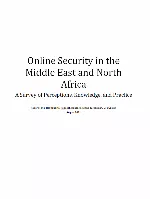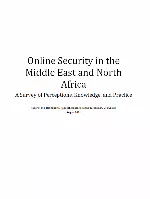Surveillance
The Surveillance project is drawing a map of the different forms and impacts of surveillance online. Funded by the MacArthur Foundation and run in collaboration with our partner institutions from the OpenNet Initiative on Internet filtering, the project will explore the various technical, political, and social issues involved in Internet surveillance through its blog, An Eye on Surveillance, and through a series of upcoming research papers.
As use of the Internet and other digital communication technologies have exploded over the past ten years, the accessibility of information has grown many times over. This increased access to information has been a source of individual empowerment in many, many ways. The Internet facilitates participation in grassroots political campaigns, allows individuals to publish their writing (and music, video, and other media) to the world at virtually no cost, and puts vast stores of data instantly at the fingertips of billions of users.
The flip side of the growth of the Internet is that it makes it much easier for a wide variety of different to collect, process, and search for information about individuals. A wide variety of entities now surveil individuals online in a wide variety of different ways -- by snooping on the network, by collecting information directly about individual Internet activity, by tapping into the vast ocean of data collected about individual Internet usage, by installing snooping software directly on individual computers.
In fact, a central challenge to the study of Internet surveillance is the very large number of different methods, actors, and cases and the number of technical, political, and social impacts of the surveillance. We will address this challenge by undertaking both broad and deep examinations of the subject, writing about both the overall technical landscape and about specific cases of Internet surveillance. In looking at the technical landscape, we will work through the variety of different method and actors to enable us to ask how any given form of Internet surveillance fits on the larger map.
We will look at the traditional forms of surveillance that enable governments to intrusively monitor their own (and other) citizens. We will also look at less traditional forms of surveillance that allow, among many other examples, advertisers to monitor consumers, criminals to monitor their victims, and service providers to monitor their customers. Along these lines we will produce maps of the high level technical and legal landscapes of Internet surveillance; a series of reports on Internet surveillance in individual countries exploring how the local technical, political, and social situations impact the practice of Internet surveillance in each country; and case studies of specific examples of surveillance involving advertising online, cloud computing, malware, and other examples of surveillance.
The project is supported in part by the John D. and Catherine T. MacArthur Foundation.










